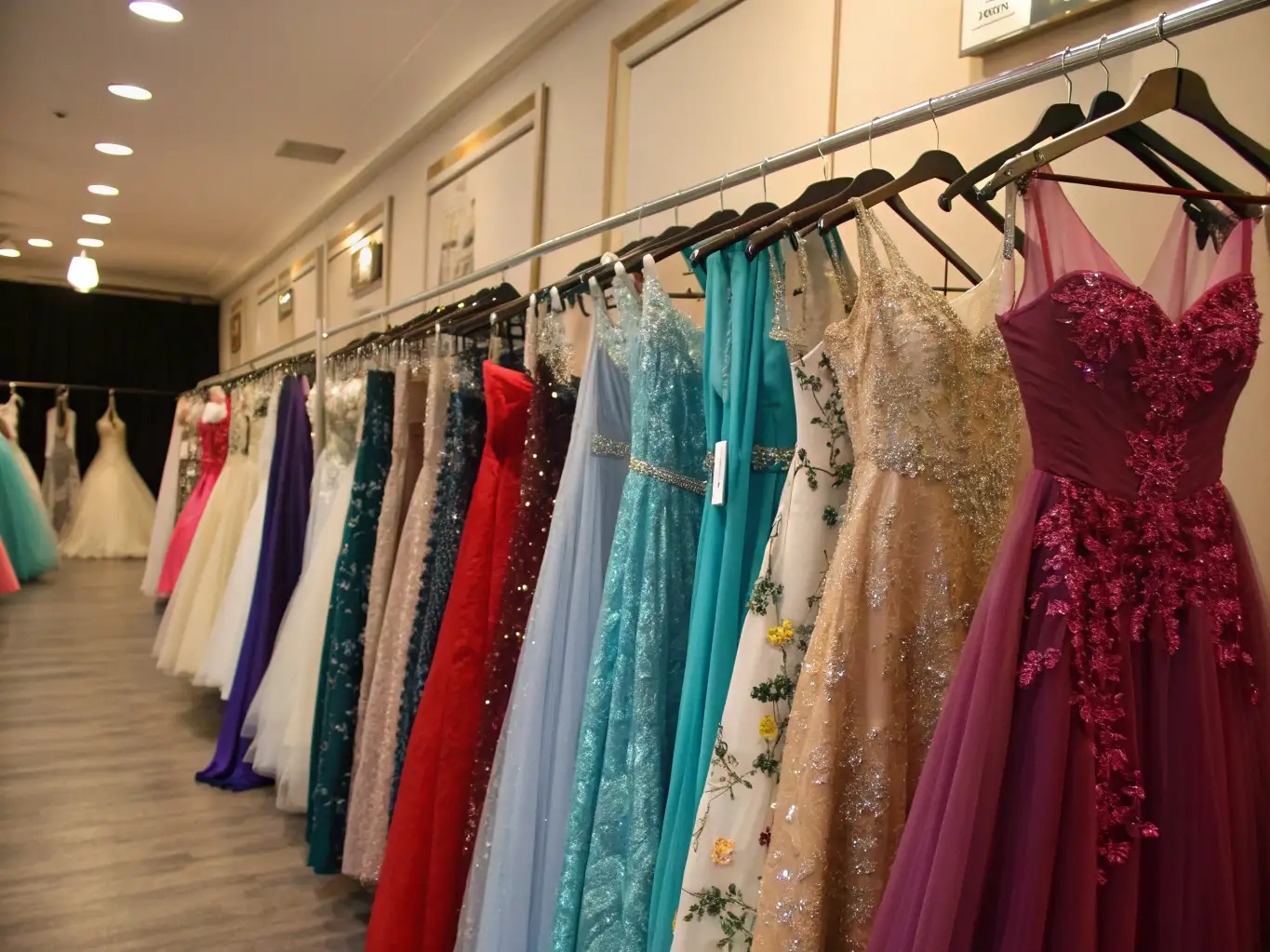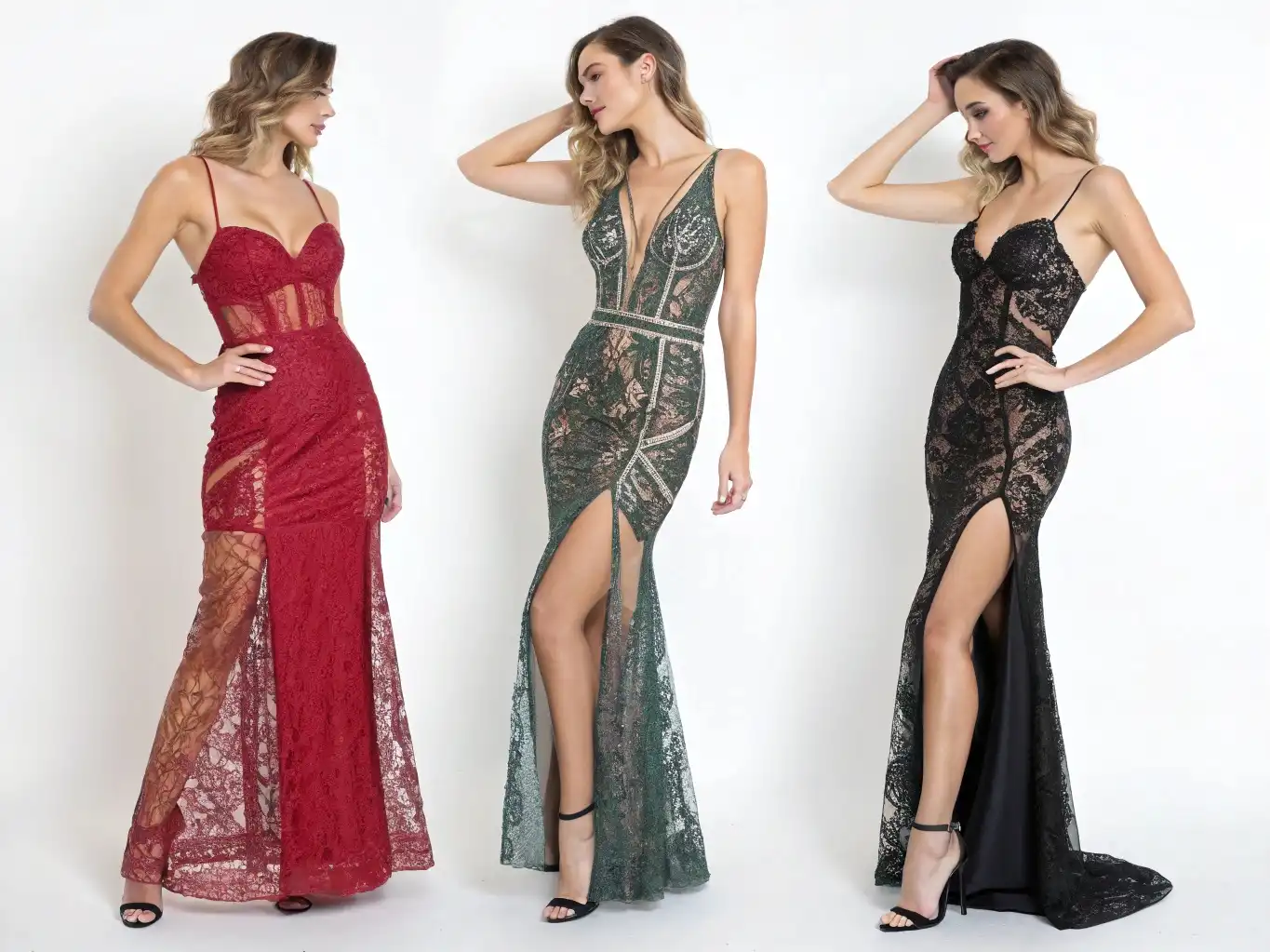Shein is now one of the most recognizable names in fast fashion, but its business model, policies, and legal frameworks differ greatly from those of traditional wholesale dress suppliers. Retailers and resellers need to understand how Shein operates, what’s allowed for bulk buying, and which alternatives offer better opportunities for long-term business.
Shein is primarily a direct-to-consumer (DTC) fast-fashion retailer—not a traditional wholesale supplier. It does not offer official B2B or authorized wholesale programs for bulk buying or commercial resale. Retailers seeking legal, scalable dress supply should use verified wholesale platforms1 or OEM/ODM factory partners.
With extensive experience in wholesale sourcing and manufacturer relations, I’ll break down Shein’s true role, the pitfalls of unauthorized reselling, and the best alternatives for dress retailers in 2025.
How Shein Operates: Retail, Dropshipping, or Wholesale?
Understanding Shein’s business model is crucial for anyone considering it as a dress supply source.
Shein is fundamentally a global e-commerce retailer selling direct to consumers, using agile supply chains and digital marketing. It does not function as a B2B wholesale distributor or authorized sourcing platform for other retailers.
Is Shein primarily a fast-fashion DTC brand or a sourcing platform?
Shein is almost exclusively a DTC brand, focusing on selling trendy, low-cost apparel directly to end-users worldwide. Its rapid design-to-market process is optimized for retail customers, not for business-to-business transactions.
Shein vs. Wholesale Platforms
| Platform Type | Primary Customer | Business Model | Resale Allowed? |
|---|---|---|---|
| Shein (DTC) | Individual consumer | Retail, occasional bulk discounts | Not authorized |
| Wholesale (e.g. FashionGo, Alibaba) | Retailer, boutique | B2B, large quantity sales | Yes, by agreement |
Does Shein officially offer wholesale or B2B programs for dress retailers?
No. Shein does not run official wholesale or B2B reseller programs. Any bulk order features on their site are targeted at individuals, not at commercial buyers, and their policies prohibit unauthorized commercial redistribution.
Shein’s B2B Policy Highlights
- No official wholesale program.
- No licensing or resale partnerships.
- Bulk buying options are not for retail/commercial use.
- Violations risk order cancellation and account bans.
Can You Buy Dresses from Shein for Resale?
While it is technically possible to buy Shein dresses in bulk, it is not permitted by their terms—and poses serious legal and brand risks.
Reselling Shein products without permission may violate their terms, lead to account suspension, and create legal or reputational issues, especially regarding intellectual property and branding.
Are there policies that restrict bulk buying or commercial redistribution?
Yes. Shein’s terms and conditions explicitly restrict the use of its products for commercial purposes or resale. This means buying Shein goods with the intent to resell is a breach of contract and can result in penalties.
Shein’s Bulk Buying & Resale Risks
| Activity | Policy Status | Potential Risks |
|---|---|---|
| Personal bulk order | Permitted, for self-use | Account flagged if too frequent |
| Commercial resale | Prohibited | Account ban, legal consequences |
| White label/reseller program | Not available | No support or business protection |
What are the legal and branding risks of reselling Shein dresses?
Reselling Shein items can lead to legal disputes over intellectual property, trademark, and copyright infringement. Using Shein’s branding or imagery is especially risky. Retailers can also face chargebacks, negative reviews, or penalties for failing to meet quality standards.
Reselling Shein—Risk Assessment
| Risk Type | Description | Consequences |
|---|---|---|
| Trademark/IP Infringement | Selling branded Shein as your own | Legal action, forced removal |
| Quality/disclosure issues | Misleading about product origin | Customer complaints, returns |
| Policy violation | Breaking Shein’s rules | Account termination, no recourse |
Alternatives to Shein for Legitimate Dress Wholesale Sourcing
For legal, sustainable wholesale business, use platforms and suppliers that support authorized B2B transactions and private label manufacturing.
Verified wholesale platforms (like FashionGo, Joor, Alibaba) and OEM/ODM factories offer true wholesale, custom design, and business support—ensuring higher margins, exclusivity, and legal peace of mind.
Which platforms offer verified dress suppliers with better margins and licensing?
- FashionGo, Joor, LA Showroom: Curated for retailers, provide verified suppliers and brands, support for resale.
- Alibaba, Global Sources: Connect you with OEM/ODM factories for bulk orders, private label, and custom design.
Top Wholesale Sourcing Alternatives
| Platform | Licensing/Support | MOQ Flexibility | Brand/Style Variety |
|---|---|---|---|
| FashionGo | Yes | Moderate–Low | Mid-tier to premium brands |
| Joor | Yes | Moderate–High | Designer & luxury brands |
| Alibaba | Yes (for B2B) | Low–High | All segments, custom OEM |
Should you consider OEM/ODM partnerships2 with factories over DTC brands?
Absolutely. OEM (Original Equipment Manufacturer) and ODM (Original Design Manufacturer) partners provide full business support, including private label manufacturing, custom design, exclusive production rights, and legal contracts—unlike DTC brands such as Shein.
Benefits of OEM/ODM over DTC
| Supply Type | Customization | Legal Security | Margin Control | Brand Ownership |
|---|---|---|---|---|
| OEM/ODM | Full | Yes | High | Yes |
| DTC (Shein) | None | None | Low | None |
Pro Tips for Retailers Seeking Long-Term Dress Supply Partners
Building a stable, profitable dress business requires strategic supplier relationships—prioritize transparency, scalability, and brand control.
Seek suppliers that offer clear business terms, exclusivity opportunities, transparent production, and robust after-sales support. Consider MOQs, logistics capabilities, and ongoing communication for brand stability and growth.
Should you prioritize supplier transparency, exclusivity, and brand control?
Yes. Verified suppliers with transparent documentation, clear contracts, and options for exclusivity are best for sustainable, high-margin business. Controlling your own branding and IP ensures long-term value.
Key Factors in Choosing a Supplier
| Factor | Why It Matters | Best Practice |
|---|---|---|
| Transparency | Reduces risk, clarifies terms | Insist on contracts, certifications |
| Exclusivity | Protects market share, higher ROI | Negotiate territory, style rights |
| Brand Control | Enables marketing, price power | Use private label/OEM services |
What MOQ, logistics, and support services matter for scaling your fashion brand?
Minimum order quantity (MOQ) flexibility allows you to test designs before scaling. Efficient logistics (shipping, customs, tracking) and responsive support reduce disruptions and help scale quickly.
Supplier Service Checklist
| Service | Scaling Benefit | Retailer Advantage |
|---|---|---|
| Low/negotiable MOQ | Easier market testing | Reduced risk, agile restocking |
| Logistics support | Faster, safer delivery | Lower delays, less stress |
| Customer service | Problem-solving, adaptation | Builds trust, stronger partnership |
Conclusion
Shein is not a legitimate wholesale supplier for retailers seeking long-term, legal dress supply. Its business model, terms, and legal risks make it unsuitable for B2B sourcing. For genuine wholesale, look to verified platforms and OEM/ODM partnerships offering business support, legal protection, and profitable growth. By prioritizing transparency, exclusivity, and flexible support, you can build a successful, sustainable fashion retail brand without the risks of DTC-only suppliers like Shein.






